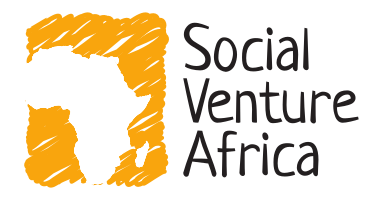Health
In the rural region of Eastern Ghana there is are regular electricity shortages. Some communities still have no connection to the electricity grid and others only have an unreliable electricity supply. A large part of the population is completely unaware of the benefits of renewable energies and of environmental protection. Another issue is the lack of educational opportunities for the underprivileged youth, especially for women.
To address the lack of opportunities and the gender imbalance, our vocational center provides training for the disadvantaged. The shortage of qualified electricians in rapidly developing countries, suggests that educating underprivileged youth and women as electricians and solar power specialists will allow them to get empowered, take their destiny in their own hands and make a significant contribution to their local societies. In the entire nation there are currently only five female certified electricians who are registered with the Ghana Energy Commission. With our training class, we have many more students on the way to becoming certified!
The Lady Volta Green Tech Academy (LVGTA) was established in January 2015 as a solar power competence center in the rural Volta Region of Eastern Ghana that provides underprivileged and disadvantaged students education and training in electricity and renewable energies. LVTC’s objective is to provide students with income generating activities, mentoring and professional opportunities. Given the vast underrepresentation of women in technical profession, the LVTC regards it as important to have many female students and to promote women empowerment—an issue that has been at the core of Village Exchange Ghana’s activities for more than 13 years.
The LVGTA develops, produces and distributes tailor made solar products in Eastern Ghana. The objective is to make affordable and green energy available to everyone and foster the development of rural areas in a sustainable and environmentally friendly way. To achieve these goals, the LVTC sells small solar devices like cell phone chargers that have been locally produced in the vocational center. Recently, the LVTC started to develop, manufacturing and selling tailor-made solar-mini grid packages and solar devices that meet the needs of local households and small businesses. These activities do not only support the local economy and environment, but they also create income for the school and provide employment opportunities to electricity students and solar power specialists.
Our graduates this month of November 2017 will becomes trainers for the new trainees and students!
The Lady Volta Vocational Training Centre in Electricity and Solar Power can be replicated in any developing country with a demand in renewable energies and the education of solar power specialists. The school curriculum needs to be modified for local circumstances since it is important to give students the opportunity to obtain official degrees that allow them to work as certified electricians in a given jurisdiction. The solar-mini grid packages developed by the LVTC can be easily modified to local circumstances due to the flexibility and scalability of solar power installations.
Charge-up Ghana: Train women to produce small, cheap and low-tech solar-powered devices such as cell phone rechargers, lamps and radios. In the first phase of the project we aim to produce 200 solar-powered cell phone rechargers and some prototypes for other solar-powered devices. The devices would be produced and sold locally. The ultimate goal is to generate income for young vulnerable women, while at the same time promoting employment and local business, and improving local productivity.



